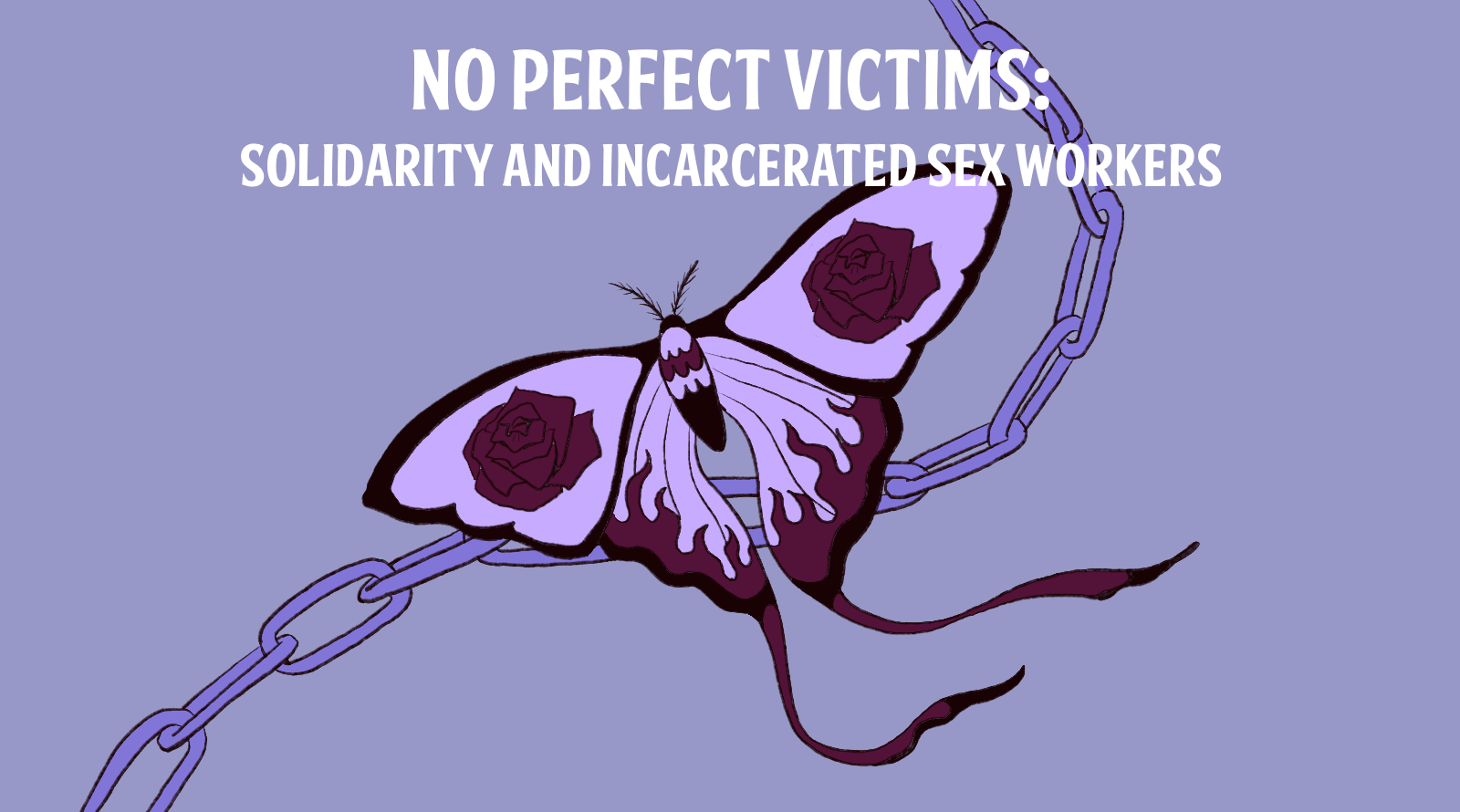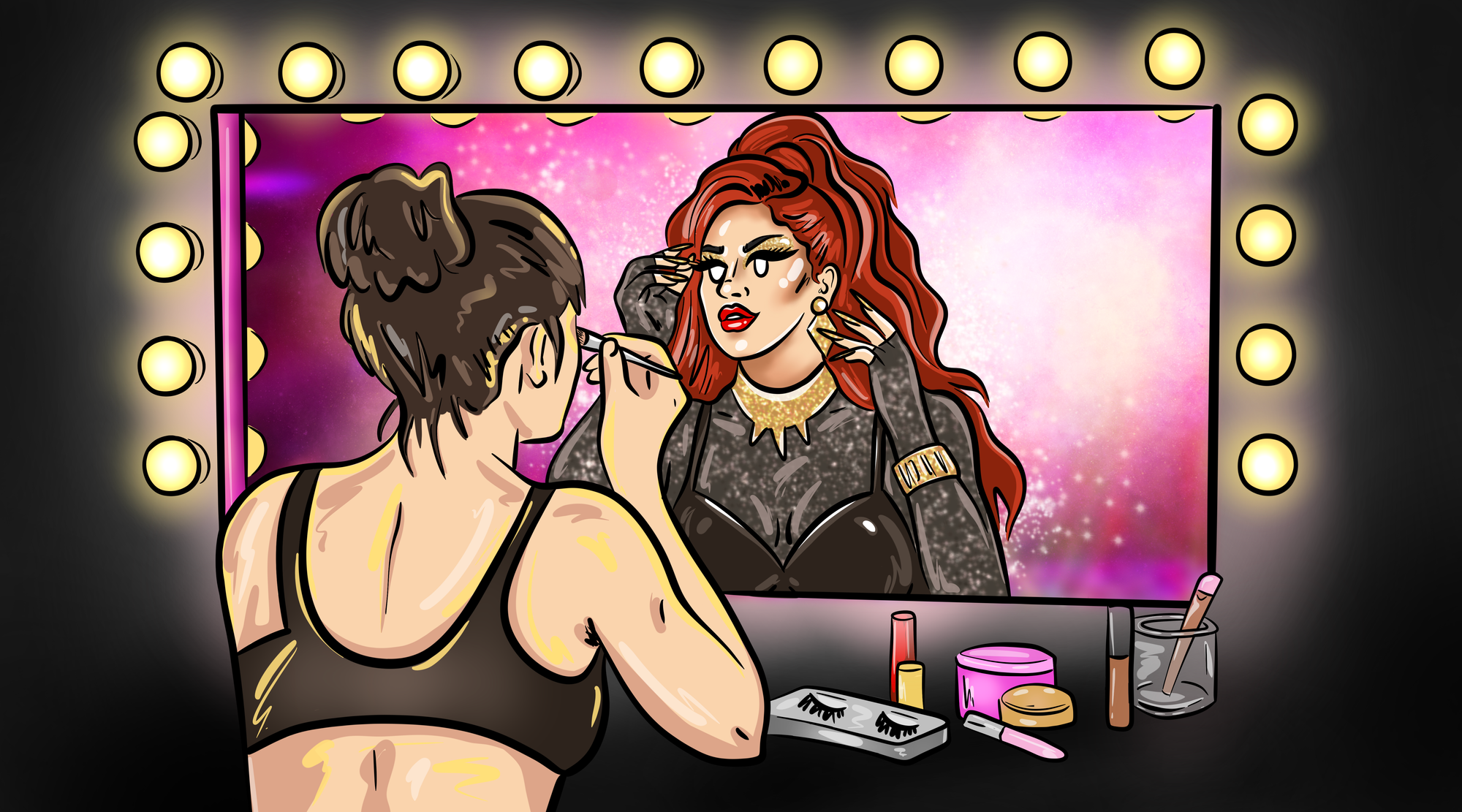Trigger warning for sexual assault, abuse, and violence.
Movements for the rights of marginalized people often have to be particularly concerned with optics. Sex workers are viewed as deviant or criminal as default, by a large portion of the public, so standing in solidarity with us can mean there’s bigotry splashback. Activists with a history of selling sex will have that used against them. Victims of race or gender related hate crimes will have their experiences minimized and dismissed if they are revealed to be sex workers. As a result, many movements intentionally render marginalized sex workers invisible within their ranks, or refuse to acknowledge or focus on our issues. This leaves sex workers ourselves as the only viable support network for each other.
For people who engage in sex work while incarcerated, even sex worker advocates are reluctant to defend or support them through activist efforts, lest they be accused of supporting criminal activity. The more stigmatized the crime, the more solidarity and support is withdrawn, until almost none remains. Imprisoned sex workers are in a precarious position and their issues don’t disappear upon release. Without support to protect them against violence and aid them financially, imprisoned people end up in a cycle of abuse and recidivism and the sex work they engage in becomes more dangerous, both in and out of prison.
The more stigmatized the crime, the more solidarity and support is withdrawn, until almost none remains.
We need to think about imprisoned sex workers as individuals rather than only as a concept. Sarah Jane Baker was recently imprisoned after a speech she made at Trans Pride. Sarah had previously served 30 years in prison and had been released ‘on licence’, which means she had to adhere to certain terms whilst outside of prison, for the rest of her life. Because of this, her comments at Trans Pride were subject to more scrutiny than they would be for other members of the public. She was ultimately arrested for saying. “If you see a TERF, punch them in the fucking face,” despite the fact that a different member of the public without her criminal history would not be arrested for such commentary.
During Sarah’s first sentence – which was initially not a life sentence but was extended into one for the attempted murder of another inmate who had extensively abused her – she wrote a book about some of her experiences. She detailed treatment from guards and other inmates that amounted to nothing short of torture. In both her book and in various interviews, we get more context about her life and her experiences of being raped and attacked in prison, as well as information about her engagement in prostitution.
We need to think about imprisoned sex workers as individuals rather than only as a concept.
Sarah has engaged in sex work throughout her life. She started young, around the age of 12, after abuse at home and various attempts at running away. Whilst in prison, she engaged in different kinds of sex work there too, including trading sex for drugs. Her openness and candidness about what it was like to trade sex behind bars is incredibly important. It allows us to understand how to support prisoners in similar situations who will not, or cannot, speak up. We cannot aid the vulnerable people in our community who are imprisoned without knowing what their needs are. Nor can we help them recover after release, if we remain unaware or ignorant of what kinds of trauma they have likely suffered.
Many people will be reluctant to ally themselves with someone convicted of a crime, especially someone who has engaged in violent acts. I could appeal to the reasons that we should have empathy for someone like Sarah in particular, but we shouldn’t have to make the case for each individual that they deserve compassion. No matter what someone has done, they do not deserve torture, whether we find them to be a sympathetic victim of the system or not. We cannot assess which sex workers deserve support based on likeability.
To put too much emphasis on what others will think of the sex worker movement, for our solidarity with prisoners, is a mistake. They already view us as criminals or deviants and unworthy of victimhood. For those who would seek to have anyone who sells sex placed in a prison, we lose nothing by providing resources for those who are already there. Our numbers are not large enough for us to leave anyone behind to rot. Once we let go of the idea of the perfect victim, our community is much more able to reach everyone in need.
We cannot assess which sex workers deserve support based on likeability.
Though prisoners exemplify the subset of victims who are denied our empathy, this treatment is often applied to sex workers as a whole. When raped or attacked by clients, people will argue that we asked for it by engaging in sex work at all. This argument is barely distinguishable from the idea that inmates deserve to be raped as part of the punishment for their crimes, and that if they did not want to be raped in prison then they shouldn’t have broken the law.
For people who are still in prison, communication with the outside world can be vital to stay connected to it. If you know of a sex worker in prison, contact them, write to them, let them know you still see them. Offer them a non-judgemental person to speak to about their experiences. As with any sex worker, the impetus to sell sex is often a need for money (safety), so in addition to maintaining contact with those in prison there is also a way to help with financial support. Providing money directly is an option, as is donating towards legal fees and fundraising efforts arranged by friends and family. In Sarah’s case, there is a fundraiser for her at a performance in London on October 9th.
Though prisoners exemplify the subset of victims who are denied our empathy, this treatment is often applied to sex workers as a whole.
Once someone leaves prison, we must make the conscious choice to welcome them into community, into groups we have built for sex workers. This may mean explicitly stating that you accept ex-prisoners at your sex worker social events, it may been seeking out people who specialize in the mental health of those who have served time when creating lists of sex worker friendly therapists, or it might be as simple as not shying away from making a friend when you hear about their arrest record.
In places where sex work is criminalized to any degree, we are all considered criminals. Even if your sex work doesn’t break the law, we are all tarred with the same brush. It’s a matter of luck rather than morality, and it won’t save you. Everyone deserves basic human decency, we must have each other's backs. Solidarity means all of us.
Are you a sex worker with a story, opinion, news, or tips to share? We'd love to hear from you!
We started the tryst.link sex worker blog to help amplify those who aren't handed the mic and bring attention to the issues ya'll care about the most. Got a tale to tell? 👇☂️✨





